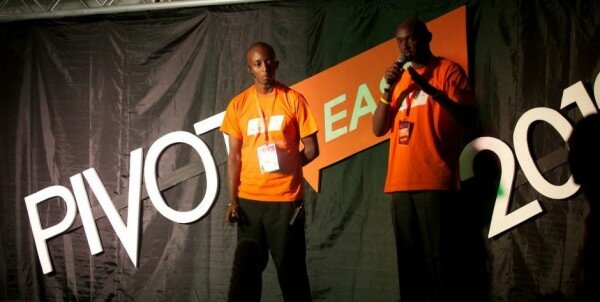
PIVOT East 2013, East Africa’s leading mobile startups competition and conference, started yesterday with entrepreneurs, investors and developers discussing how to solve African problems through innovation and technology.
The first session of the day kicked off with startups which develop solutions for the education sector.
Four out of five startups in the PIVOT East 2013 Mobile Society Category are in the education technology space.
The startups have developed to help students collaborate and share academic materials or communicate with their teachers through mobile devices and virtual platforms.
eShule was one of the startups to be presented in the morning session in Kampala.
The startup by the E-cademy Africa is a smartphone and internet based application delivering high school courses, careers, colleges and connections for studying abroad where they provide an online database of teaching notes and exam material for all the major KCSE examinable subjects.
eShule is currently partnering with teachers of subscribed schools to provide access to premium learning content.
The team asserted to the investors that they intend to use 25 per cent of the funds they seek from potential investors to develop their mobile platform of education startups.
skoobox, an academic-networking platform that makes learning process more connected and open, followed in the presentation.
The startup intends to centralise an academic platform where students can share information regarding their academic course and where students can discuss academic affairs and post on academics.
skoobox revealed that since inception on March 20, 2013, they are now at 212 users at the University of Nairobi and Strathmore University in Kenya.
The application seeks funds from the investors to increase its network to accommodate more students and to share academic content. The key milestone projection for skoobox is to have 18,000 users to enable advertising and in-app purchases.
Code Vision, from Uganda, also presented their BrainShare App. BrainShare is a web and mobile app that enables students to easily exchange notes, past papers, revision materials, and coursework or ask questions remotely.
So far Brainshare is making more than $1,200 per month in revenue. Brainshare stated that they were willing to do whatever it takes to protect their competitive advantage which is quality of content.
During the first fireside chat, moderated by Joyce Tonda of Technology East Africa, the panelists talked about the regional marketplace and the opportunities it presents to entrepreneurs.
Nicola D’Elia, growth manager Africa at Facebook, encouraged the startups and app developers to be more creative in a competitive market.
“To be a developer now is to be in a very competitive market place. You have better chances if you adapt solutions to the bigger player’s market driven demand”. he said.
Gillies Fayad, Qualcomm director for business development, advised startups not to compete with big providers who are covering essential infrastructure such as Google and Facebook. Instead they should focus more on differentiating their solutions.
“Don’t be afraid to change your applications as you evolve, because target audiences and markets change”, says Fayad.
Mbwana Alliy, founder and managing partner of the Savannah Fund, said developers should be careful which operators they partner with.
Alliy added: “For example Safaricom may not help scale across East Africa.”


















